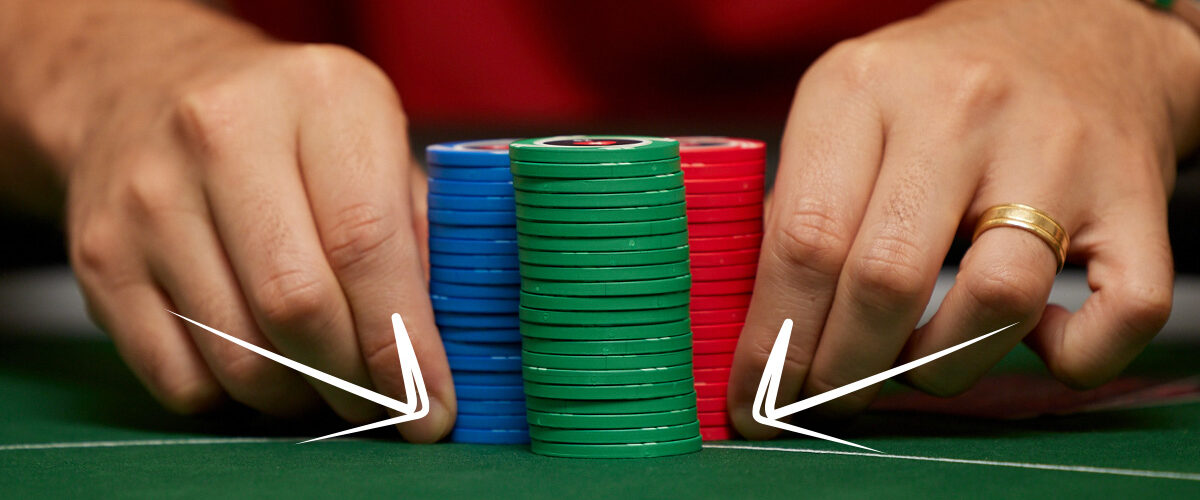Bouncing Back from Downswings
Poker is a game of small edges. Even if you’re a good player you won’t be able to win all of the time. Like with most sports, there is an element of luck involved in poker. Let’s compare it to soccer, for example. If you match a strong Premiership football team like Arsenal up against a perennial lower league side such as Bristol Rovers the chances are that Arsenal would win most of the time. They are a better football team by any discernible criteria you would wish to measure.
However, the element of luck – which can manifest itself in a dodgy refereeing decision, the weather, or even a team’s performance on the day – will inevitably mean that sometimes Rovers will manage to draw and sometimes they will even win the match. This type of luck element is apparent in almost all sports and games. When playing poker, it’s multiplied.
In an online poker cash game, a good winning player can expect to win anywhere from 60-70% of their sessions. Even if you take the upper end of this estimate, 70%, then you would still be experiencing loss three times in every ten sessions you play. And because the cards have no memory these losing sessions won’t always be spread out evenly with plenty of winning sessions in between.
Sometimes you might go five or six sessions in a row losing, or even a couple of weeks or months. This could be due to playing bad poker, experiencing bad luck (also known as ‘variance’ in poker) or a combination of the two. When this type of run occurs it’s known as a downswing. Downswings happen to every poker player eventually. If you happen to get stuck in a rut it’s important to know how to bounce back and how to keep your confidence up. Here are some top tricks to get back to winning ways…

Discover the root of your problems
Before you can fix a losing streak it’s imperative that you try to find out what the problem is. The best way to do this is to look back at recent hands you have played and view them objectively, without the pressures of having to make decisions at the table. You can do this using a hand replayer. Did you check back and allow your opponent to hit a gutshot straight? Were you slow playing when you should have been betting? Did you fail to bet for value on the river when it was clear you had the best hand? These are among the many questions you should ask yourself when reviewing hands. It can be invaluable at this point to ask the opinion of a friend who plays poker too. Sometimes a fresh set of eyes on a problem can provide answers that you wouldn’t have thought of.
Once you’ve done your analysis if you conclude that your downswing is purely due to a succession of bad luck then it should be easier to overcome. In theory, all you have to do is keep playing and, if you are a stronger player than your opposition, you will eventually break out of your slump and start winning again. The problem comes when you discover that you are playing badly. In this instance, it’s key to nail down exactly what is going wrong at the table. Maybe you are not being aggressive enough, or even being too aggressive! It could be that you are simply playing in tough games where you have no edge. Whatever the issue, it is only once you discover it that you can go about fixing it.
Try not to tilt at the poker table
Losing at poker can be very frustrating and, if you’re that way inclined, can lead to massive tilt at the tables. This is when you get upset or angry and start to play badly as a result. Tilt comes in many different forms. Some examples are bluffing too much in a wild attempt to win back chips, refusing to fold pre-flop, getting abusive in the chat box and directly targeting one player to try and right some ‘wrongs’. Here’s a spoiler: none of these moves will do your chip stack, or your bankroll, any good at all.
It’s crucial that you attempt to remain calm and continue to make rational decisions at the poker table. If you don’t it will be very difficult to win and the chances are that the downswing you’re in will only get bigger and bigger. The ability to keep calm will naturally improve as you become a more experienced poker player but you can help yourself by looking at the big picture and remembering that, so long as you are playing a winning strategy, it’s only a matter of time before the downswing ends.
Play for lower stakes to build up your confidence
A great tactic to get over a downswing is to drop down in stakes – whether its cash games, tournaments or any other variant – and try to put together a winning streak. In general, the lower stakes you play, the weaker your opponents will be. This will offer you a better chance of winning. Plus, if you do lose the stakes are no longer as high so it shouldn’t hurt as much.
This can be a very useful tactic in regaining your confidence at the online poker tables. Even though the money won may be smaller, getting your mojo back can be worth more than its weight in gold. Don’t feel ashamed to drop down the stakes either, it’s the professional move to do and could be all the difference in turning around a downswing or prolonging it for more time to come.


